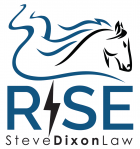In the summer of 2017, Lebron James was frustrated that the Cleveland Cavaliers were not spending enough money to keep up with the rest of the NBA’s attempts at re-tooling their rosters for improvements. Sometimes our clients have a similar frustration when they are in a car accident and the insurance company doesn’t seem to be spending enough money to help them fix their current vehicle, or get another one.
Most personal injury lawyers in Las Vegas won’t help their clients with property damage issues following an accident that results in injuries. At Steve Dixon Law, however, we try and do as much for our clients as possible. Although we generally won’t take care of the entire property damage issue for a client (mainly because the client can sometimes do it much easier than we can because of the readily accessible information) we still get a lot of questions about why the insurance company decided their car would be called a total loss.
The first thing to keep in mind is that insurance companies really don’t have an ultimate say in what will be considered a total loss. Although sometimes we may question how they arrived at a fair market valuation of your vehicle, the ultimate total loss decision, once that value is obtained, is all based on Nevada statutes. Nevada Revised Statutes, specifically NRS 487.790, declares a total loss to be 65 percent of the vehicle’s cash value — not counting the cost of painting, towing and repairing electronics on the vehicle. Here’s an example: let’s say your car has an actual cash value (“ACV”) of $10,000 on Monday. You get in a wreck on Tuesday. The total repairs for the vehicle equal $6,501. Your car would necessarily be deemed by Nevada law to be a total loss and you would be given a salvaged title.
Unfortunately, being given a salvaged title for your vehicle mostly results in more money out of your pocket. For that reason, feel free to call us at (702) 329-4911 and ask about how we can also fight for your rights to recover the “loss of use” value of your vehicle against an at-fault party’s insurance company.

